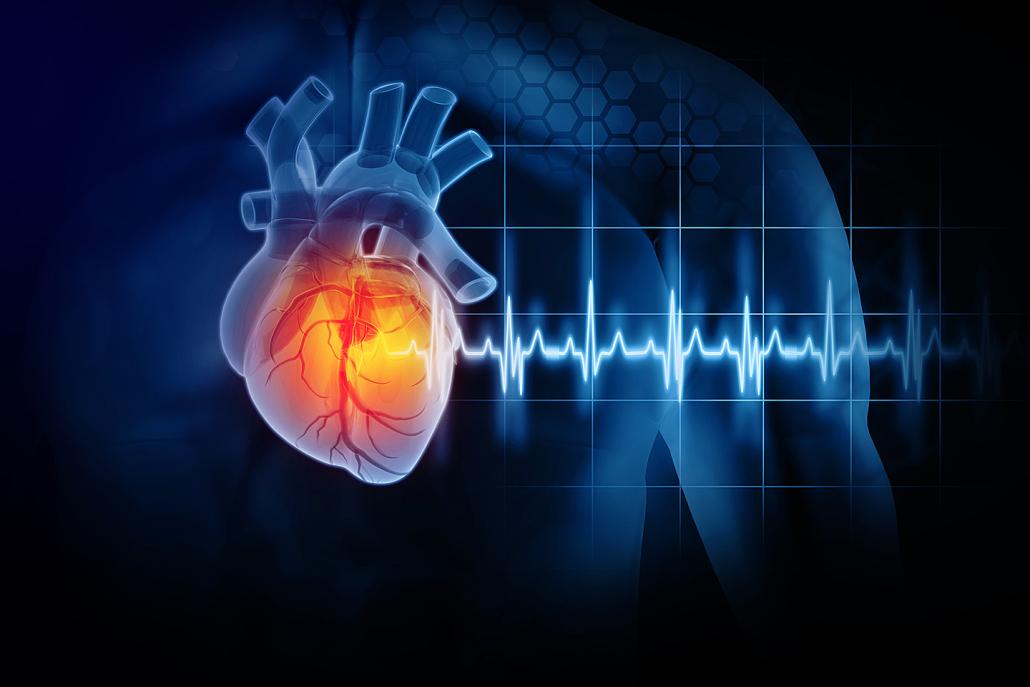
We all enjoy moments when the heart swells with pride or joy. But did you know an enlarged heart is more than an expression? Summit Health cardiologist Benjamin Chadi, MD, answers questions about an enlarged heart, including symptoms, causes, diagnosis, and treatment.
What does an enlarged heart mean?
An enlarged heart, or cardiomegaly, describes a bigger-than-typical heart seen on an imaging test. Cardiomegaly indicates various conditions that can cause the heart’s enlargement. These conditions can be temporary or long-lasting, affecting parts of your heart or all of it.
Dr. Chadi says an enlarged heart may have to work harder to pump blood efficiently. “Enlargement generally reflects either increased blood volume inside the heart or increased thickness of the heart muscle,” he explains. “Its cause may be a normal reaction to various stresses or a disease state.”
Enlarged heart symptoms
An enlarged heart doesn’t always cause symptoms. Some people might experience:
- Lightheadedness or dizziness
- Fatigue or low energy
- Swelling in the belly, legs, or feet
- Irregular heart rhythm
- Shortness of breath
While an enlarged heart usually isn’t an emergency, seek medical help immediately if you experience:
- Chest pain
- Pain in your jaw, neck, arms, or back
- Fainting
- Severe shortness of breath
What causes an enlarged heart?
The most common illness that causes an enlarged heart is coronary artery disease (CAD), which restricts blood flow to the heart and can lead to a heart attack. CAD is the most common type of heart disease, affecting more than 20 million adults in the U.S.
Other enlarged heart causes include:
- Conditions that cause increased blood volume in the heart, such as:
- A cardiac shunt, a congenital heart defect causing an abnormal pattern of blood flow through the heart. Congenital means the defect is present at birth.
- A leaky heart valve that allows blood to leak backward. Healthy heart valves, by contrast, keep blood flowing through the heart’s four chambers in one direction.
- Conditions that cause the heart muscle to thicken, such as:
- High blood pressure
- Aortic stenosis - the narrowing of the heart’s aortic valve
- Hypertrophic cardiomyopathy - a heart muscle disorder often caused by a genetic mutation
- Cardiac amyloidosis - a rare disease where proteins called amyloids build up in the heart tissue
- Conditions that weaken the heart’s muscle or its blood-pumping ability, such as:
- Ischemic cardiomyopathy due to the heart muscle not getting enough blood supply. This lack of blood supply is often caused by CAD or a heart attack.
- Other factors and conditions that can damage or inflame the heart muscle, such as excessive alcohol use or certain viral infections.
“The heart muscle generally doesn’t regenerate fully after such damage,” says Dr. Chadi. “Therefore, prevention or rapid treatment is very important.”
Is myocarditis the same as an enlarged heart?
Myocarditis is inflammation of the heart muscle. A viral infection, such as the flu or COVID-19, causes most cases of myocarditis in the U.S. Bacterial and parasitic infections (such as Chagas Disease, common in Latin America), exposure to chemicals or radiation, and autoimmune diseases also are among possible causes.
Dr. Chadi says myocarditis is rare. Researchers estimate myocarditis affects 10 to 20 out of every 100,000 people worldwide each year.
Treating an enlarged heart
Diagnosing an enlarged heart starts with a physical exam and discussing any symptoms with your provider. Dr. Chadi says a provider can feel what’s called your heart’s “point of maximal impulse” on a physical exam. “The position and size of this point can suggest increased cardiac size,” he says.
Your provider may order additional tests to confirm a diagnosis, including blood work and imaging. “Echocardiography is generally the first and simplest method to confirm a diagnosis,” notes Dr. Chadi. This test uses sound waves to check your heart’s size and function.
Enlarged heart treatment depends on the condition that’s causing it. Your provider may recommend lifestyle changes or prescribe medications. Other procedures may be needed, such as a pacemaker, heart valve repair or replacement, or coronary stenting or bypass surgery.
Should you see a cardiologist?
Talk to your provider if you’re worried about your heart disease risk or experience any symptoms that concern you. You may be referred to a cardiologist specializing in heart-related needs. “A cardiologist can help ensure proper treatment and monitoring,” says Dr. Chadi.
